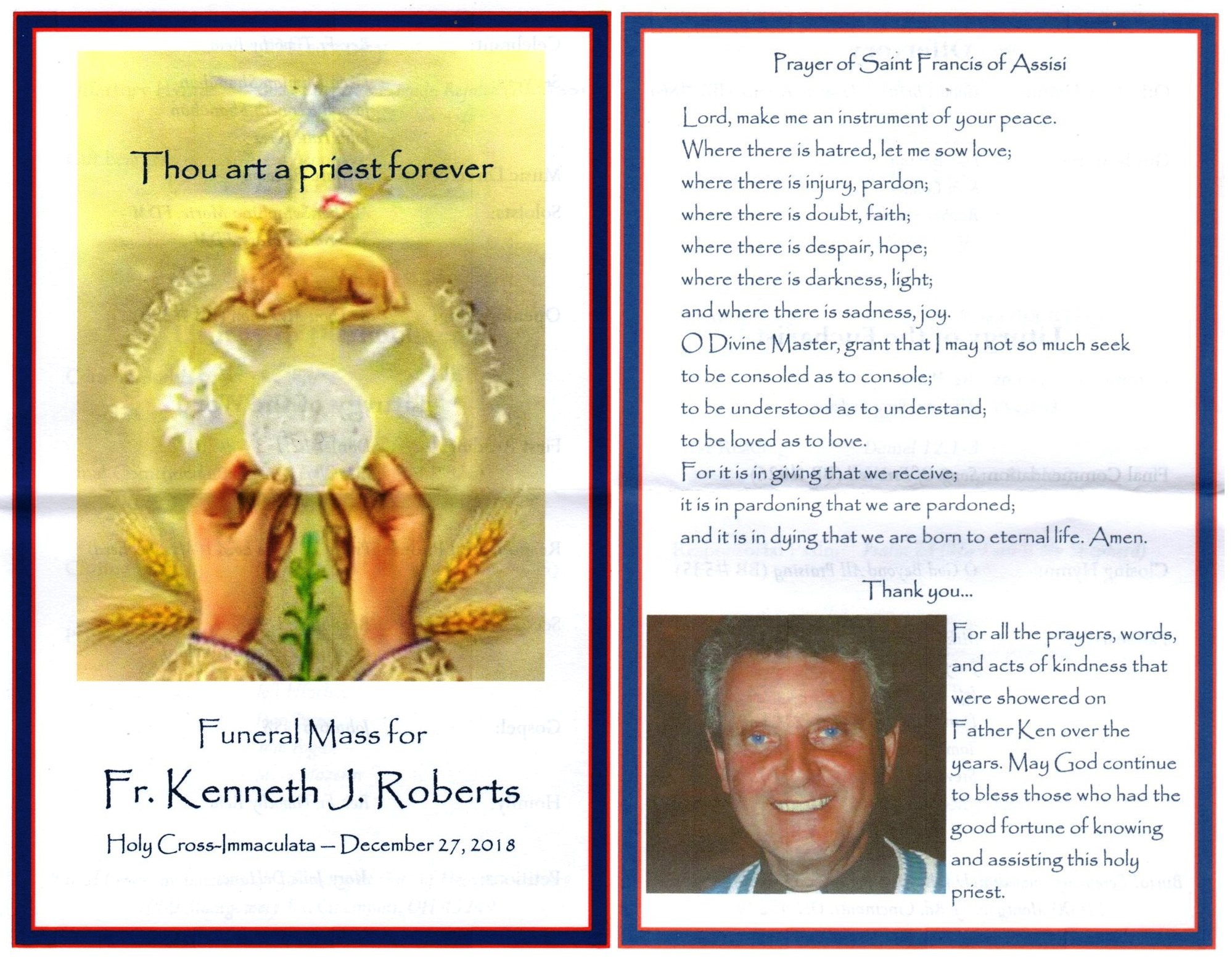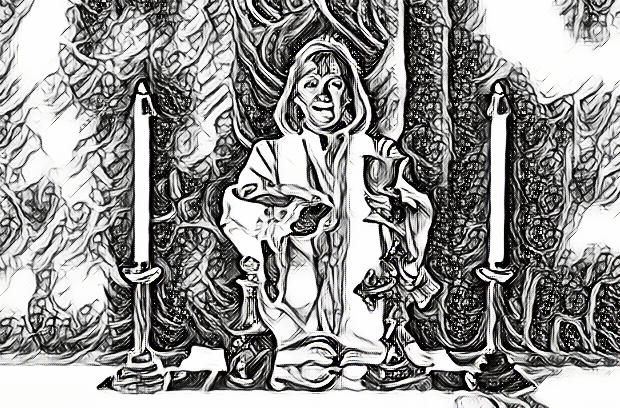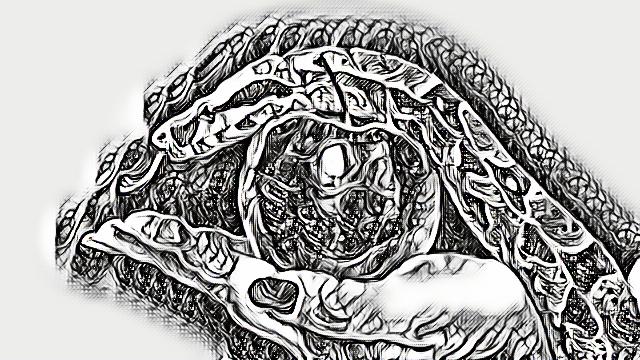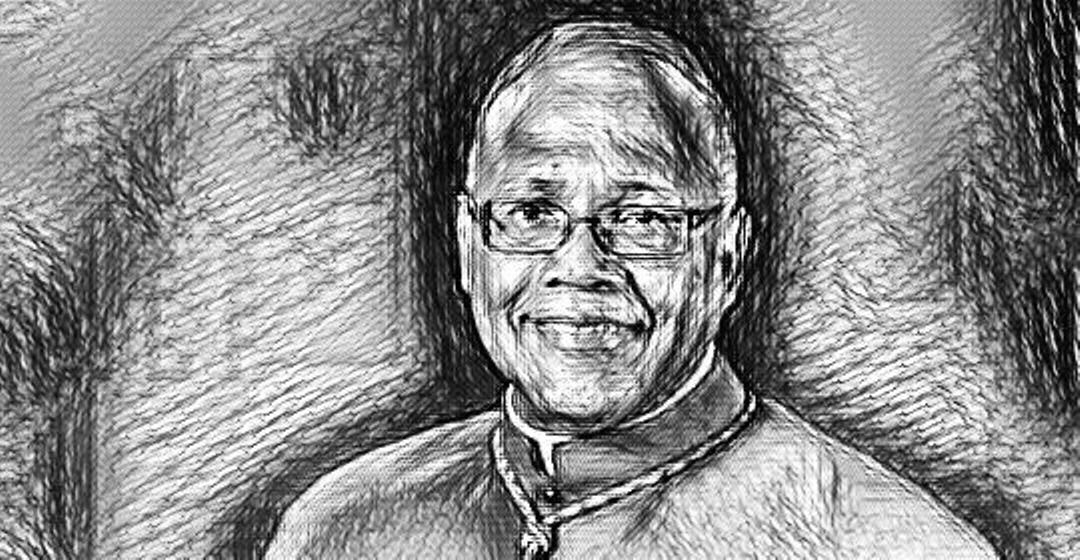
Having celebrated this morning the memorial Mass for St. Francis of Assisi, I am inspired by the votive Gospel reading (Matthew 11:25-30) to reflect upon the Our Father. This may seem a bit odd as the reading was not about the Lord’s Prayer, per se, but rather a different albeit neglected oration with similar attributes. Jesus announces, “I give praise to you, Father, Lord of heaven and earth, for although you have hidden these things from the wise and the learned you have revealed them to the childlike. Yes, Father, such has been your gracious will.” This much, any of us as believers could recite. However, unlike the Our Father, this was Jesus’ personal prayer. There was no request to teach the gathering how to pray. The Lord’s Prayer is given to us as one that reflects the human condition of weakness and sinfulness. Like us, Jesus will be tempted in his humanity; unlike us, he will surrender himself into the hands of the evil one so that we might be delivered. The prayer here speaks of his unique identity as the divine Son of God: “All things have been handed over to me by my Father. No one knows who the Son is except the Father, and who the Father is except the Son and anyone to whom the Son wishes to reveal him.”
Note that it begins much as does the Lord’s Prayer as an oration of praise addressed to the Father. Heaven is also mentioned although here it is clear that he has lordship over both heaven and earth. We are given a quick glimpse of our Lord’s relationship as “the Son” to the Father. This is not figurative language or pure analogy. It is expressive of his very identity. (Note that at his baptism in the Jordan the identity of Christ as the beloved only Son of God is revealed; when it comes to our baptism, our identity is changed— we become adopted sons and daughters to the Father.) We are summoned as “children” to trust God in our communication with him and in the life of faith. Ours is not a detached or malicious deity. He loves us and wants the best for us, which is union with him. Suffering and death come into the world through sin. While the dark mysteries are not immediately brushed aside, we have in Christ one who is in solidarity with us. Indeed, by enduring the price of sin, he redeems us. A distinction must be made between the active and passive will of God. The Father did not send his Son into the world because he directly willed for him to be tortured and murdered. That would image God as monstrous. The reason or motivation for his coming is made clear in the reading: “Yes, Father, such has been your gracious will.” The mission of Christ is to be faithful to his Father’s will— to do whatever it takes to fulfill the divine saving plan. Both here and in the Our Father, the providence of God is accentuated, “thy will be done.” The reading continues: “All things have been handed over to me by my Father. No one knows the Son except the Father, and no one knows the Father except the Son and anyone to whom the Son wishes to reveal him.” We know that his situation is not entirely comparable to our relationship with the Father because we are purely human and Jesus is the second person of the Holy Trinity. He is God made man. Nevertheless, he gives us something of his relationship as our own.
Interestingly, this prayer in Matthew appears in the Gospel again tomorrow (Saturday, the 26th Week of the Year, Cycle 1) albeit from Luke 10:17-24. Prior to the prayer, the text states: “At that very moment he rejoiced in the Holy Spirit . . .” This is an important lesson for us as the great Christian revelation is that of the Trinity. Jesus reveals to us the face of God. He patterns for us how we are to pray to the Father, through the Son and by the Holy Spirit. Our Lord prays in the Spirit. Saturday’s text from Luke also precedes the prayer of Jesus with the return of the seventy-two disciples sent out by the Lord. We are told they come back rejoicing and say, “Lord, even the demons are subject to us because of your name.” Jesus responds, “I have observed Satan fall like lightning from the sky.” A link can be drawn between this and the ending words of the Our Father where we pray “deliver us from (the) evil (one).” Ours is a jealous God. He will not share us. If we belong to him then the devil can have no part of us!
More than any other prayer, the oration that is held in common by all Christians is the Lord’s Prayer or the Our Father. While there are a few variant English translations, we all recognize it and it is a staple in our liturgies. It is the one prayer that we have memorized. Until recent times, most Catholics could also recite the Our Father in Latin, something which the Vatican still promotes so that visitors to Rome from around the globe can recite this prayer in unison. Note that the prayer for peace and its sign is placed immediately after the Lord’s Prayer in the Mass. This is no accident as both the ritual and the prayer from the lips of Christ immediately signifies the unity of the believing community in Christ. We should exhibit caution that while it is memorized, we should never say it mindlessly or mechanically. We would not want to lose sight of the treasury of prayer types that make up the whole. It has been called the perfect prayer. Our Lord gives it to us as both as a prayer to be said and as a formula for other prayers. These are words that we must make our own if it is to be a true dialogue with God. It is the one prayer that is essential to a person’s daily prayer and spiritual life as a Christian.
During the Sermon on the Mount, our Lord introduces the Our Father. “In praying, do not babble like the pagans, who think that they will be heard because of their many words. Do not be like them. Your Father knows what you need before you ask him” (Matthew 6:7-8). Why did the ancient pagans babble with many needless words? First, they were speaking to a false deity. As such they were really talking to themselves, trying to convince themselves, despite their frustration that someone was listening. Nevertheless, there was no response— no intervention— just a painful silence. Second, some of the pagans believed that if they could stumble upon the true name of God then all their wishes would be granted. They literally babbled long strings of nonsense words for this purpose. This was no genuine speaking in tongues, but a one-sided and deliberate effort at magic or sorcery so as to manipulate the deity. It was not intelligent conversation just fruitless gibberish. Nothing came from it. Third, some sought to pamper God just as they did people of power or high station or wealth. They were moved not by a desire as creatures to give praise to the Creator; no, this was simply an effort to ingratiate themselves so as to court favor. Such people were often very weak and fearful in character. The more anxious they became the more they talked and talked and talked. Fourth, the pagan priests in particular would often shout and repeat their petitions— almost as if their deity were deaf or had to be convinced to respond. This stood in stark conflict with the intimate union that Jesus shared with us by giving “his” Father to us as “our” Father and suggesting a back room, hidden away, as the best place to privately pray.
Note that those who know each other often need few words. I have known long-term spouses that can communicate to each other with a look or a nod. God knows us better than we know ourselves. He knows what we want. More importantly, he knows what we need. He hears all prayer, even that which is said in a whisper while we are alone. We do not have to make a big show about prayer and faith. The main thing is that it remains real. The Lord’s Prayer helps us to render true prayer.
Certain anti-Catholic critics will use our Lord’s spurning of the babbling prayers of the pagans to attack upon our recitation of the rosary. But such an argument collapses as there is definite content to the rosary, i.e. the mysteries of faith. Others, particularly the “once saved, always saved” apologists will argue against persistence in prayer. This latter view crumbles because we are urged to pray always. Note the story about the mistreated widow in Luke 18 who prevails against an unjust judge because of her persistence in wanting justice. Jesus commends her to his listeners. If she can find justice from a bad judge, just imagine how well our petitions will fare given that the divine judge is all good and loving. Our Lord tells his listeners not to lose heart when they pray and that it is a “necessity for them to pray always without becoming weary” (Luke 18:1). Patience and persistence is really more for our sake than for God’s. While the Christian will humbly acknowledge divine providence, our petition prayers ideally express what we really want, the desires of our hearts. This speaks immediately to our relationship with the Lord. Is Christ our true treasure? Do our hearts belong to him? What do we really want? God knows what we really need. It has been said that God answers all prayer. A catechist friend teaches, “Sometimes the answer is yes, sometimes no and sometimes not now.” I would add that often the asking itself is the true answer as it breeds a sense of dependence upon the divine. When the answer does come it is often a gift unexpected but what we really need.
I think part of the answer for which we are looking is hidden in the Catholic mystery of purgatory. We are taught that this purification rightfully begins in this world. Often we pursue penance and various mortifications. But we are also purified and transformed in our daily life of prayer. The response of God and his timing brings us to a continual conversion or changing by grace. This is also expressed in the Our Father, to put on Christ, to have the will of the Father. Any questioning experiences a reversal. Those least enlightened and transformed will ask, “Why doesn’t God give me right now what I want?” The person who has walked with the Lord for a while will ask, “Why is it that I am still restless and fail to want what God wants in my life?”
Christianity is not sorcery and the Our Father is not a magical incantation. Christianity is the end to magic and superstition. The words of the Lord’s Prayer are precious but they also constitute a formula to assist us in putting together our own personal words when we pray. Further, prayer is a back-and-forth operation. We talk to God and then we pause and find quiet in ourselves to listen for God’s whispering to our souls. This is not self-deception. It is something wondrous and real. The conversation with God must be authentic if it be constitutive of a worthwhile and personal relationship in faith. Remember that Catholic-Christianity is not a book religion or one of philosophy and rules. At its very heart, Christianity is a personal and communal relationship with a person, with the saving Lord. It is Jesus who draws us into the mystery of the Trinity. He is our mediator to the Father. Remember, our orations are made to the Father, through the Son and by the Holy Spirit.
How are we to pray?
“Our Father in heaven, hallowed be your name, your kingdom come, your will be done, on earth as in heaven. Give us today our daily bread; and forgive us our debts, as we forgive our debtors; and do not subject us to the final test, but deliver us from the evil one” (Matthew 6:7-13).
1. To Whom is Our Prayer Addressed?
As mentioned before, we address the Father as a people who have been brought into a more intimate relationship with God. We are not merely creatures appealing to the Creator but adopted sons and daughters to our heavenly Father, kin to Christ and children of our Queen Mother Mary. We are invited into the family of God. The Holy Spirit makes possible this saving faith. Otherwise, neither believing nor prayer would be possible. While we are naturally wired for God as demonstrated by all the efforts at sacrifice and worship toward a deity around the world and throughout human history; the God of the Jews is revealed as a loving Father. He is the Abba or “papa.” We are his little children. It is this God who surrenders his only Son so that we might be saved from our sins. Jesus is conceived by the Holy Spirit. He works his miracles by the Holy Spirit. He raises himself from the dead by his own power, the Holy Spirit. The Spirit of God is extended to us in faith and baptism. We become temples of the Holy Spirit— a people regenerated or “born again.”
Our posture as we approach the Father in prayer is not comparable to the oppression humanity endured as the devil’s property. Redeemed or bought at great price, we are no longer slaves but sons and daughters.
“For those who are led by the Spirit of God are children of God. For you did not receive a spirit of slavery to fall back into fear, but you received a spirit of adoption, through which we cry, ‘Abba, Father!’ The Spirit itself bears witness with our spirit that we are children of God, and if children, then heirs, heirs of God and joint heirs with Christ, if only we suffer with him so that we may also be glorified with him” (Romans 8:14-17).
Note that we address God by denoting that he is in heaven. Heaven is by definition where God is. One might even say that God is heaven. Those who would live in heaven must live in God. The Trinity will be our eternal home.
“As proof that you are children, God sent the spirit of his Son into our hearts, crying out, ‘Abba, Father!’ So you are no longer a slave but a child, and if a child then also an heir, through God” (Galatians 4:6-7).
We are literally heirs to the kingdom of heaven. It is in Christ and by grace that we will be divinized— members of the family of God.
2. Summoned to Give Glory to God with the Angelic Hosts.
The angels of God always keep their sights upon God and give him eternal glory. We are invited into this chorus of praise. Our rejoicing comes with the acknowledgment of God’s holiness, “. . . hallowed be thy name!” At Mass we have the Sanctus where we cry, “Holy, Holy, Holy.” Holiness is more than a description of God or a divine attribute. One might regard it as a name. Indeed, the Trinity is intimated by the Sanctus, the triune holy God; he is three co-equal divine persons in one God or divine nature. What is holiness? It signifies something of the divine otherness. When possessed by men they are transformed into the likeness of Christ. Saints are not self-made and it is so much more than being good. Foremost, a saint is a sinner that has been forgiven. God extends something of his own mystery and plants himself into the souls of men. We become temples of the Holy Spirit and new Christs for a world that still needs to encounter Jesus.
The pattern when praying is always to begin with praise. It conveys the basic posture of the creature to the Creator and the Son to the Father. Other forms of prayer will eventually pass away. Giving glory and praise to God is not only foundational to the spiritual life but to the order of creation. The sung praises of the heavenly hosts is the symphony or music of all rightly disposed creation. If there is a discordant note or break in the harmony, such is reserved for the devil and his indentured pawns. Those who keep faith with Christ have every reason for their “sure and certain” hope. The righteous man or woman (not self-righteous) knows joy even before crossing the threshold from this world into the next. He or she already carries something of eternal life.
The Mass gives us the Gloria, a wonderful expression of praise which ushers forth a real sense of the Church in pilgrimage giving praise in unison with the Church in heavenly glory:
Glory to God in the highest,
and on earth peace to people of good will.
We praise you,
we bless you,
we adore you,
we glorify you,
we give you thanks for your great glory,
Lord God, heavenly King,
O God, almighty Father.
Lord Jesus Christ, Only Begotten Son,
Lord God, Lamb of God, Son of the Father,
you take away the sins of the world, have mercy on us;
you take away the sins of the world, receive our prayer;
you are seated at the right hand of the Father, have mercy on us.
For you alone are the Holy One,
you alone are the Lord,
you alone are the Most High,
Jesus Christ,
with the Holy Spirit,
in the glory of God the Father. Amen.
It is a peculiar but authentic side-effect in the spiritual life that when the creature (the lesser) gives glory to the Creator (the greater) that something of the divine shines back upon the one rendering praise. We laud God as holy and thus make ourselves into recipients of his holiness. That which is praised, is shared or reflected back. We can only be saints because we participate in the holiness or divine otherness that is God. The one human person that supremely participates in this holiness is the Virgin Mary. She is preserved from sin and made holy because the All Holy One enters the world through her. She becomes an exemplar for God’s other children as to how we can be transformed by grace. Note the humble posture of Mary in Scripture. The pattern of praise that Jesus sets for us is realized in his first disciple. The Church echoes her daily in the Magnificat when reciting the Liturgy of the Hours: “My soul proclaims the greatness of the Lord, my spirit rejoices in God my Savior for he has looked with favor on his lowly servant.”
3. It is in Giving that We Receive.
The liturgy, our prayers and even the life of charity consist of elements of giving and receiving. “Thy kingdom come, thy will be done, on earth as it is in heaven.” The pattern is clear. The kingdom breaks into the world through the person of Christ. Then we respond by taking up our crosses and following him. The obedience of those on earth should mirror the fidelity found in heaven. The back-and-forth and the many prayer types in the Our Father also find witness in the great prayer of worship, the Mass. We encounter the Lord in his Word and we respond with praise and alleluia. The Gospel is proclaimed and we respond with affirming the Creed and petitions. God has given us the grain of the field and the grapes of the vine. We take them and make them into bread and wine. Next, we offer them to God that they might become the body and blood of Christ. Given to us again, we offer the Lord to the Father as the one acceptable sacrifice. He gives it back once more for Holy Communion. We take what we have been given and then give it to others as a people sent on mission. We cooperate with God but the initiative remains with God. We would have nothing to offer— we would be nothing— apart from the movement of God and his gifts to us. While we are called to obedience and to be sentinels of the kingdom, the kingdom of God breaks into the world according to his providence and not by human labor and whim.
This reception requires reflecting upon what the Lord says and does for us. Otherwise, we would be hard-pressed to know his will in our lives. Many people think they are good but, separated from the Lord they do not know how to be good. A son or daughter might advocate euthanasia for a parent suffering pain. A husband might urge contraception to his wife because of pressing financial worries. A friend might suggest to another teen an abortion because of unplanned pregnancy. They might all think they are doing right; however, they are easily led astray when separated from the Church and the content of the Good News (the Gospel of Life). Formation in the faith, along with prayer and reflection, give us divine guideposts as to how we should live and act. Otherwise, genuine love is replaced by a terrible and false compassion.
We must all be alert to the danger of devaluing prayer from a dialogue to a soliloquy. Are we communicating with God and allowing him to speak to us? Are we talking to ourselves and simply mimicking God with what we want to hear? While obedience plays an important part in Catholic discipleship, we are not mindless robots or soulless ants. The hands of the soul must be outstretched to receive what the living Word would give us. Indeed, the true disciple hungers for the truth that God wants us to receive and to know. Disposition and appropriation are vital. We must be ready for what God wants us to have. We must make what God offers our own, before any selfish desires or human fears. The pain at the end of a person’s life might be the means of a final purification so as to see God. The self-donation of spouses in the marital act may give their union it’s most precious gift and preserve their union. The unborn child regarded as an inconvenience or an accident may prove to be the person who most loves us in return and makes a positive difference in what would otherwise be a lonely life filled with regret. We have to know God’s will, even in the face of sin, and then trust God’s will in a childlike manner.
Christians should regularly open the Scriptures. It is God’s inspired Word. When we read or hear the Word of God there is a human-divine encounter. Every meeting with God changes us— if we are open— if we want to be in right relationship with God. Catholics should also know their catechism and look up all the attached Scripture passages. There is also utility in following the daily readings of the Mass as well as looking at the prayers. We are people called to both a personal and a corporate faith. We pray alone, among a few friends or family and with the community of faith at the Lord’s Supper (the Mass). The Mass is a participation in the marriage banquet of heaven. Christ is the groom and the Lamb of God. The Church is his bride. Christ instituted the Church so that we would have each other and to insure that his truths and sacraments would not be lost in the passage of time. The kingdom of God breaks into the world, first through the person of Christ and now through the Church, his mystical body.
4. Supplication Emerges from Our Dependence upon God
“Give us this day, our daily bread.” The first prayer that we learn as children is one that comes naturally— intercession and petition. A child asks his mother for a cookie. We make a request of God for a favor. We pray for ourselves and for others. There are some who reduce all prayer to petition. This phenomenon was manifested after the 9-11 terrorist attacks. There was a short while when millions seemed to return to religion. They had lost control. They were desperate and afraid. A year later many of them had fallen away again. Their faith was shallow. They could ask God for things; but, they were ill-equipped spiritually to give. Where was the praise? Where was the thanksgiving? Too often when it comes to “gimme” prayers, there is a lack of balance or focus. If the person does not get what he or she wants, then the person gets angry and stops praying. They are quick to tell God his business but slow to listen.
While prayers of petition might be the most elementary and readily distorted; God indeed wants his children to turn to him. However, we must do so with a profound humility and acceptance of God’s will. The Lord’s Prayer has us pray for our daily bread, that which sustains our life. Yes, this first may be the food for our bellies but it is so much more as well. We are also fed from the table of the Word and from that of the Eucharist. Jesus teaches, “It is written: ‘One does not live by bread alone, but by every word that comes forth from the mouth of God’” (Matthew 4:4). Given how Jesus does not run away from his mission; we must also pray for strength and courage. This was lacking when Peter denied knowing Jesus and the apostles were in the locked upper room hiding. The risen Lord would appear to them and along the beach to heal Peter. We cannot escape the Lord and we should face the challenges that come to us with a witness that celebrates Christ’s victory over sin and death. Whatever this world takes away from us, we know that Christ can give back many times over.
The Bidding Prayers or General Intercessions at Mass constitute a wonderful model for petition prayers. We pray for many needs: the Church, our country and the larger world, for the oppressed or those facing injustice, for the suffering or the sick, and for those who have died as well as for those who mourn them. A number of us regularly pray for an increase of vocations as well as for good and holy priests. Given the tragedy of abortion, most faithful Catholics pray daily for the unborn child, the right to life and that parents will have hearts welcoming toward their children. We can pray about anything— safety, health, solvency, security, belonging, love, etc. A mark of our Christianity is our willingness to pray on behalf of those who hate and seek to hurt us. This is a great measure to the authenticity of our faith and our willingness to imitate Jesus.
Having said all this, such supplications should not be reduced to crass and ineffective magic or superstition. The believer trusts that God knows best. It is not like rubbing Aladdin’s lamp and wishing for a million dollars in small bills. I would also doubt that an angel will come down from heaven with the winning lottery numbers. My credulity is also strained by those who pray during sporting events. While it is okay to pray for a fair match and the safety of players, I am doubtful that God would intervene so that the Redskins football team would beat the Cowboys, even if the devil does have a contract with the athletes from Texas. Countries might pray for victory and for peace during times of upheaval and war; however, I think God is more on the side of justice over oppression. Historically both sides often pray to the same God. I am reminded of the unofficial truce of 1914 during World War One. The leadership of the warring countries refused a papal petition for a hiatus in violence. Nevertheless, the soldiers in the trenches declared their own unofficial Christmas truce. It was said that one could hear the hymn Silent Night simultaneously being sung in the different languages of the combatants. Many visited the enemy camps. Food and drink was shared. The dead were exchanged. Small gifts were given. The peace did not last very long but it was a teaching moment about human brotherhood that still haunts us in a divided world.
Watching the news on television or reading about tragedies in the newspapers often leaves us unmoved. This should not be the case. We have access to news unlike any generation before us. This should become an occasion for prayer, not voyeurism seeking the sensational. We may not personally know the victims of violence or natural disasters but they are still people like us. They need to be remembered in our prayers to God. When possible we can add our donations to those prayers to assist people in a material way, too.
The worse the people, the more we should feel compelled to pray for them. Who knows, a believer may find out when he meets the Lord at judgment that his were the solitary prayers for some poor soul who had no one to care enough to remember him to God. Many will rightfully pray for victims, but how many of us pray for the victimizers? The most they usually receive is the venom of curses elicited from hatred. Over time many poor souls are forgotten. We should pray for those who need jobs and for those who sell themselves and are exploited to make ends meet or to care for children and those who need them. We should pray for those living on the street and eating out of dumpsters; we should also pray for the callous who walk around them each day uncaring. Many have made bad decisions and are locked into destructive behaviors and addiction. We can lend a helping hand and keep them in our hearts and their needs upon our lips. Such prayer can be effective. It is also transformative for the person who is praying and interceding for others. Do we invite others to know Christ as we do? Do we ask them to pray with us? Have we ever asked a friend or neighbor to join us at Sunday Mass? Prayers of supplication are a demonstration of compassion.
5. The Proclamation of the Gospel Begins with the Cry to Repent and to Believe.
“Forgive us our trespasses as we forgive those who trespass against us, and lead us not into temptation but deliver us from evil.” Our Lord came into the world to make possible the forgiveness of sins. Here is the root of my vocation as a priest. Every priest is a minister of reconciliation ordained to extend the saving work of Christ. Repentance makes the ground fertile for faith. We have to let go of what a fallen world offers if our hands are to be free to accept the gift of Christ. (Years ago I remember reading a book by a Pentecostal minister who explained this clause of the Our Father as a bargaining with God: if you forgave others then God would give you mercy in return.) No, there is no such deal. It does not work that way. We have nothing with which to bargain with God. He holds all the cards. The Lord’s Prayer is not offering us a deal as might be imagined between gangsters; no, rather the prayer is pointing to imitation and how this furthers our new creation in Christ. If we forgive as Christ forgives then we are imitating the Lord. If we love and forgive like Christ then the Father will see something of his Son in us and give us a share in his Son’s reward. The reference to temptation is an acknowledgment of human weakness. It is okay to ask God to avoid certain challenges which might be too much for us. Of course, when empowered by grace, people are often surprised by how much they can endure as a disciple. The deliverance from evil or from the evil one is indicative of the whole meaning of Christ’s redemptive Cross. Original sin made us the devil’s property. Christ redeems us and makes us free.
We want our personal sins forgiven or remitted. We also want true liberation or the lease broken from the house that sin built— the various injustices, sources of hatred and manipulation— indeed, any and all of the framework of sin that would bring us back into demonic bondage. Christ reached out to those who were oppressed, hated, scapegoated, and cast aside. He let them know that they were important and loved. He also healed the sick, forgave sins, exorcised demons and raised the dead. These were the acts by which he gave us a powerful example of counteracting the presence of sin or evil among us. When facing the effects of evil, we all need deliverance prayer and heartfelt contrition. Our sins placed Christ on his Cross. He died for each of us by name. He said from the Cross, “Father, forgive them, they know not what they do” (Luke 23:34). The war is over and Christ is the victor. But the devil is spiteful. He fights his small skirmishes for individual souls. We must still battle powers and principalities. Between this world and the next saints will certainly be made perfect but on the way saints are sinners who know they have been forgiven.
Filed under: Apostles, Catechesis, Catholic, Church, Devil, Discipleship, Faith, Fatherhood, Forgiveness, God, Jesus, Liturgy, Morality, Prayer, Reflection, Religion, Repentance, Sin | 1 Comment »





























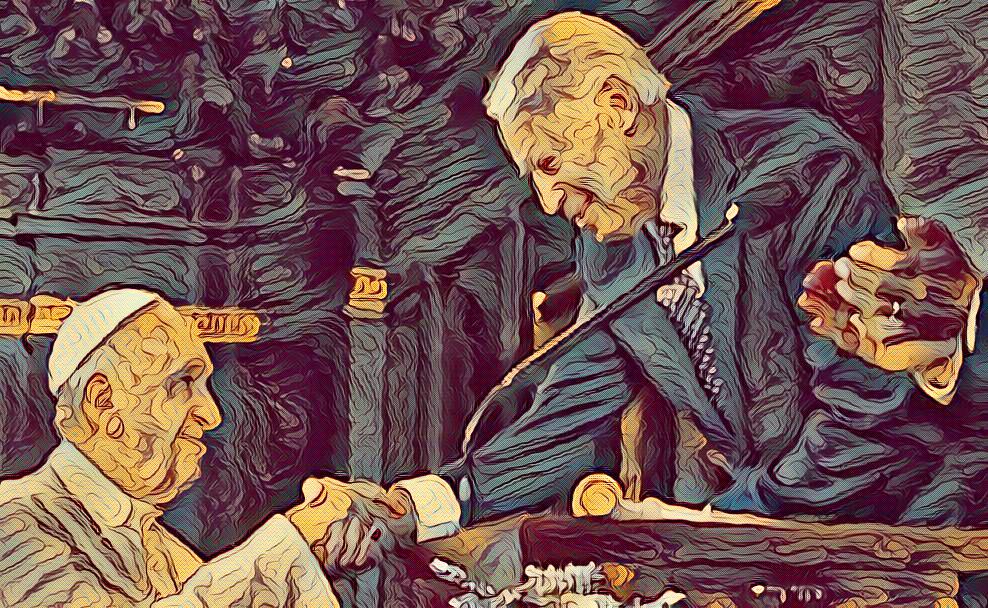


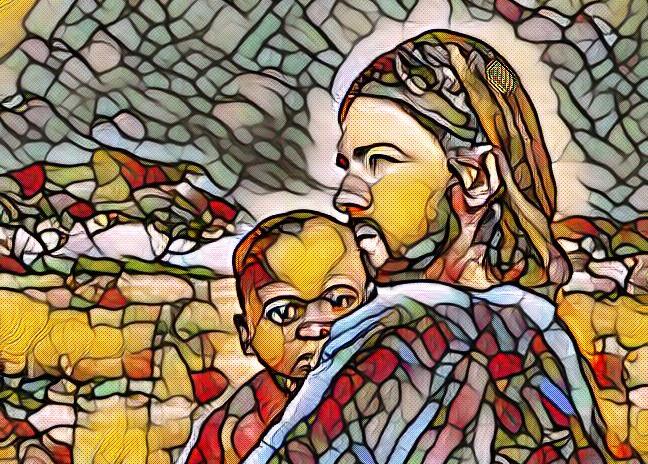
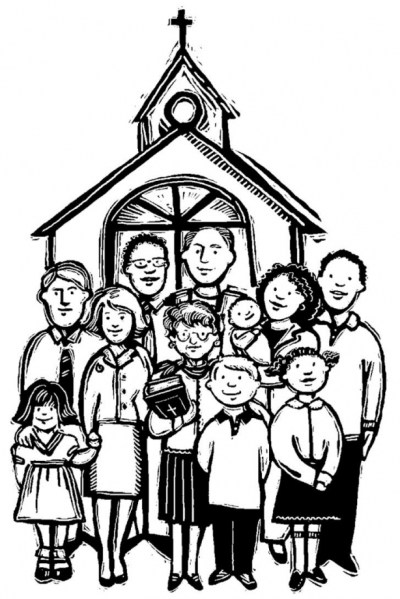 We often speak about the failure to transmit the faith to children as entirely the fault of the culture in which we find ourselves. However, this is only part of the challenge. As ministers, teachers and parents we need an aggressive witness from our families and faith communities. First, when it comes to those elements in society that are diametrically opposed to the Gospel, we must be visible signs of contradiction with a decisive and convincing alternative message. We must quite literally become physical and spiritual roadblocks to those who would travel the path to perdition. Further, we must find ways to make the truths of Christ more convincing and enticing than the exotic and sinful lures of the world. It is in this that we become signposts to the proverbial “road less traveled.” While walls against persons and immigrants are controversial; there should be no dispute for barriers against deadly sin.
We often speak about the failure to transmit the faith to children as entirely the fault of the culture in which we find ourselves. However, this is only part of the challenge. As ministers, teachers and parents we need an aggressive witness from our families and faith communities. First, when it comes to those elements in society that are diametrically opposed to the Gospel, we must be visible signs of contradiction with a decisive and convincing alternative message. We must quite literally become physical and spiritual roadblocks to those who would travel the path to perdition. Further, we must find ways to make the truths of Christ more convincing and enticing than the exotic and sinful lures of the world. It is in this that we become signposts to the proverbial “road less traveled.” While walls against persons and immigrants are controversial; there should be no dispute for barriers against deadly sin. Fr. Kenneth Roberts died Thursday, December 20, 2018 around 4:50 ET in Cincinnati, Ohio. Born and raised in England, he later became an American citizen. He was 89 years of age. A charismatic and articulate priest, he easily made his early reputation as a stark defender and teacher of Catholic teaching. (Back in 1989, I got to meet him over a dinner in Birmingham, Alabama.) At the time he was filming programs locally for Mother Angelica and EWTN. His book PLAYBOY TO PRIEST was one of the works that influenced many young men to discern a vocation to the priesthood, myself included. Another notable book was NOBODY CALLS IT SIN ANYMORE. He is well remembered for his books, tapes, television appearances, retreats and support for the Medjugorje apparitions and messages.
Fr. Kenneth Roberts died Thursday, December 20, 2018 around 4:50 ET in Cincinnati, Ohio. Born and raised in England, he later became an American citizen. He was 89 years of age. A charismatic and articulate priest, he easily made his early reputation as a stark defender and teacher of Catholic teaching. (Back in 1989, I got to meet him over a dinner in Birmingham, Alabama.) At the time he was filming programs locally for Mother Angelica and EWTN. His book PLAYBOY TO PRIEST was one of the works that influenced many young men to discern a vocation to the priesthood, myself included. Another notable book was NOBODY CALLS IT SIN ANYMORE. He is well remembered for his books, tapes, television appearances, retreats and support for the Medjugorje apparitions and messages.